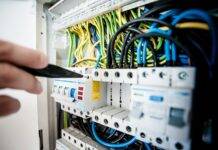
National Electrical Safety Month: Protecting Lives, Preventing Hazards
In our modern world, electricity powers almost every aspect of our lives, from lighting up our homes to running industries. However, this convenience comes with risks. National Electrical Safety Month, observed every May, serves as a reminder of the importance of electrical safety and promotes awareness about potential hazards.
History of National Electrical Safety Month
National Electrical Safety Month was established by the Electrical Safety Foundation International (ESFI) in the United States to raise awareness about electrical safety. It began in the mid-1990s and has since grown into a global campaign, recognized by various organizations and institutions worldwide.
Importance of Electrical Safety
Electrical safety is paramount due to the potential dangers associated with electricity. Every year, thousands of electrical accidents occur, leading to injuries, fatalities, and property damage. By promoting awareness and implementing safety measures, many of these incidents can be prevented.
Common Electrical Hazards
Electrical Fires
One of the most significant hazards of electricity is the risk of fires. Faulty wiring, overloaded circuits, and damaged electrical appliances can all spark fires, posing a threat to lives and properties.
Electrical Shock
Electrical shock occurs when the body comes into contact with an electrical current. It can range from mild to severe, leading to injuries or even death. Wet conditions, damaged cords, and improper use of electrical equipment increase the risk of electric shock.
Overloaded Circuits
Plugging too many devices into a single outlet can overload the circuit, leading to overheating and potential fires. It’s essential to distribute electrical loads evenly and avoid using extension cords for permanent solutions.
Damaged Wiring
Worn-out or damaged wiring increases the risk of electrical hazards. Frayed cords, exposed wires, and outdated electrical systems should be inspected and replaced promptly to prevent accidents.
Tips for Electrical Safety
Ensuring electrical safety requires proactive measures and awareness of potential risks. Here are some essential tips to minimize electrical hazards:
Regular Inspections
Periodic inspections of electrical systems and appliances can identify potential hazards before they escalate. Qualified electricians should conduct thorough inspections to ensure the safety and functionality of electrical installations.
Proper Outlet Usage
Avoid overloading outlets by using power strips with built-in surge protection. Never force plugs into outlets or use damaged sockets, as this can lead to sparks and fires.
Handling Electrical Appliances
When using electrical appliances, follow manufacturer instructions and safety guidelines. Keep appliances away from water, and never operate them with wet hands to prevent electric shock.
Using Extension Cords Safely
Use extension cords as temporary solutions and avoid running them under rugs or carpets. Choose cords with the appropriate capacity for the intended use and avoid daisy-chaining multiple cords together.
Teaching Children Electrical Safety
Educating children about electrical safety is crucial to prevent accidents. Teach them to avoid playing with electrical outlets or cords and to seek adult assistance when encountering electrical problems.
National Electrical Safety Month Activities
During National Electrical Safety Month, various activities are organized to promote awareness and educate the public about electrical safety:
Educational Campaigns
Organizations conduct outreach programs, distribute educational materials, and share safety tips through social media and other platforms.
Safety Workshops
Workshops and seminars are held to educate individuals about electrical hazards and teach them how to stay safe at home, work, and in public spaces.
Community Events
Communities come together to organize events such as safety fairs, demonstrations, and interactive activities to engage people of all ages in learning about electrical safety.
Government and Industry Involvement
Government agencies, regulatory bodies, and industry stakeholders play a vital role in promoting electrical safety. They establish standards, regulations, and guidelines to ensure the safe installation and use of electrical systems and equipment.
Promoting Electrical Safety in the Workplace
Employers have a responsibility to provide a safe working environment for their employees. Implementing proper training, safety protocols, and regular inspections can prevent workplace accidents related to electricity.
Conclusion
National Electrical Safety Month serves as a reminder of the importance of electrical safety and encourages individuals and communities to take proactive measures to prevent accidents and injuries. By raising awareness, promoting education, and implementing safety measures, we can protect lives and property from the hazards of electricity.
6 Golden Rules of Electrical Safety
5 Safety Rules for Electricity
Electrical Safety Rules in Industry
Unique FAQs
- Why is National Electrical Safety Month important?
- National Electrical Safety Month raises awareness about electrical hazards and promotes safety measures to prevent accidents and injuries.
- How can I protect my home from electrical hazards?
- Regular inspections, proper outlet usage, and safe handling of electrical appliances are key to protecting your home from electrical hazards.
- What should I do if I encounter a damaged electrical cord?
- Immediately unplug the cord and refrain from using it until it’s repaired or replaced by a qualified electrician.
- Are there specific safety guidelines for using electrical appliances in wet conditions?
- Yes, always keep electrical appliances away from water, and use ground fault circuit interrupters (GFCIs) in areas where water is present to prevent electric shock.
- How can I teach my children about electrical safety?
- Use age-appropriate language and demonstrations to educate children about the dangers of electricity, and establish clear rules for safe behavior around electrical outlets and appliances.
























